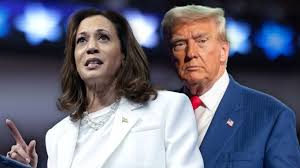The release of the highly anticipated Durham Report has brought forth significant revelations regarding the investigation into alleged misconduct during the 2016 election. Led by Special Counsel John Durham, this two-year inquiry appointed by former Attorney General William Barr aimed to delve into potential wrongdoing surrounding the origins of the FBI’s probe into the alleged ties between the Trump campaign and Russia. Here, we explore the key takeaways from the report, shedding light on its findings and implications.
Understanding the Background
The Durham Report represents the culmination of an extensive investigation conducted by Special Counsel John Durham. The inquiry, initiated by former Attorney General William Barr, focused on uncovering any potential misconduct related to the origins of the FBI’s investigation into the alleged collusion between the Trump campaign and Russia during the 2016 election.
No Criminal Charges for Top Officials
Contrary to widespread speculation, the report did not recommend criminal charges against high-ranking officials from the Obama administration or the intelligence community, including former President Barack Obama or former Vice President Joe Biden. While the absence of charges may disappoint some, it underscores the significance of adhering to the principles of due process and ensuring a thorough examination of the evidence.
Criticism of FBI Handling
One of the most notable aspects of the Durham Report is its scathing critique of the Federal Bureau of Investigation (FBI) and its handling of the investigation. The report highlights instances of omissions, misrepresentations, and inaccurate information presented to the Foreign Intelligence Surveillance Court (FISC) in obtaining surveillance warrants. Such findings raise concerns about the integrity and accuracy of the investigative process.
Misconduct by Lower-Level Officials
While high-ranking officials escaped criminal charges, the Durham Report did uncover instances of misconduct by lower-level FBI employees. The report reveals instances where agents mishandled evidence, made false statements, and engaged in improper surveillance activities. These revelations underline the importance of accountability at all levels of law enforcement agencies.
Potential Political Bias
Another significant aspect of the Durham Report is its exploration of potential political bias among certain FBI employees involved in the investigation. The report highlights text messages exchanged by some officials that exhibited a strong anti-Trump sentiment. While acknowledging that individual biases exist, it raises concerns about the need for reforms and safeguards to ensure the impartiality and fairness of future investigations.
Continuation of the Investigation
Despite the release of the report, John Durham’s investigation continues. The focus of his inquiry is shifting towards potential criminal charges against individuals involved in the creation of the Steele Dossier, a collection of unverified intelligence reports on Trump’s ties to Russia. This ongoing investigation demonstrates the commitment to uncovering the truth and holding individuals accountable for any misconduct.
Political Repercussions and Debates
The release of the Durham Report is likely to have significant political ramifications, contributing to further debates and divisions. Supporters of former President Trump may view the report as evidence of a “deep state” conspiracy, while critics argue that it falls short of validating broader claims of systematic wrongdoing. The report’s conclusions are likely to shape the political discourse surrounding the 2016 election and impact public opinion.
In conclusion, the Durham Report provides valuable insights into the FBI’s handling of the 2016 election investigation, highlighting instances of misconduct and potential political bias. While no charges were recommended against high-ranking officials, the investigation remains ongoing, with a renewed focus on the creation of the Steele Dossier. The release of the report is expected to fuel political debates and further contribute to partisan divisions.





